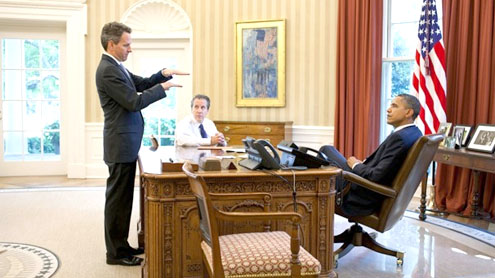 President Obama pledged at the beginning of his term to boost the nation’s crippled housing market and help as many as 9 million homeowners avoid losing their homes to foreclosure.
President Obama pledged at the beginning of his term to boost the nation’s crippled housing market and help as many as 9 million homeowners avoid losing their homes to foreclosure.
Nearly three years later, it hasn’t worked out. Obama has spent just $2.4 billion of the $50 billion he promised. The initiatives he announced have helped 1.7 million people. Housing prices remain near a crisis low. Millions of people are deeply indebted, owing more than their properties are worth, and many have lost their homes to foreclosure or are likely to do so. Economists increasingly say that, as a result, Americans are too scared to spend money, depriving the economy of its traditional engine of growth.
The Obama effort fell short in part because the president and his senior advisers, after a series of internal debates, decided against more dramatic actions to help homeowners, worried that they would pose risks for taxpayers and the economy, according to numerous current and former officials. They consistently unveiled programs that underperformed, did little to reduce mortgage debts owed by ordinary Americans and rejected a get-tough approach with banks.Doing more to address the housing crisis may be crucial not only for an economy flirting with another recession but also for a president running for reelection.
After watching their homes’ values collapse in recent years, a quarter of all homeowners are “underwater,” owing more than their homes are worth. The president’s housing policy has caused a rift with political allies, such as black and Hispanic groups, whose members have been disproportionately hurt by the crisis.On Monday, Obama is set to travel to the foreclosure capital of the nation, Nevada, where most borrowers are underwater. While there, he will meet with homeowners and push for passage of his jobs legislation, which includes money to rehabilitate hard-hit communities, and mention a program to be unveiled as soon as Monday that will reduce monthly payments for some underwater borrowers.
But Peter Orszag, a former senior White House economic adviser, said the administration has underestimated how much the nation’s massive mortgage debts would weigh the economy down after the financial crisis.“A major policy error has been to put too little weight on the long, hard slog following a financial slump,” he said. “That leads you to being much less bold with housing.”Not that there were easy answers. The administration faced the worst housing crisis since the Great Depression.
Spending large amounts of taxpayer money to bail out some homeowners — but not necessarily their neighbors — carried huge political risks and faced opposition in Congress.In this context, some senior officials say they could not have been much more aggressive.“We tried to operate at the frontier of what was possible and have continuously expanded and refined our programs in an attempt to reach as many homeowners as possible,” said Treasury Secretary Timothy F. Geithner. “We do not believe that there were feasible alternatives available to us within our authority that were better.” – WP












